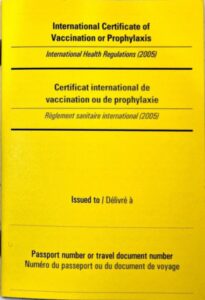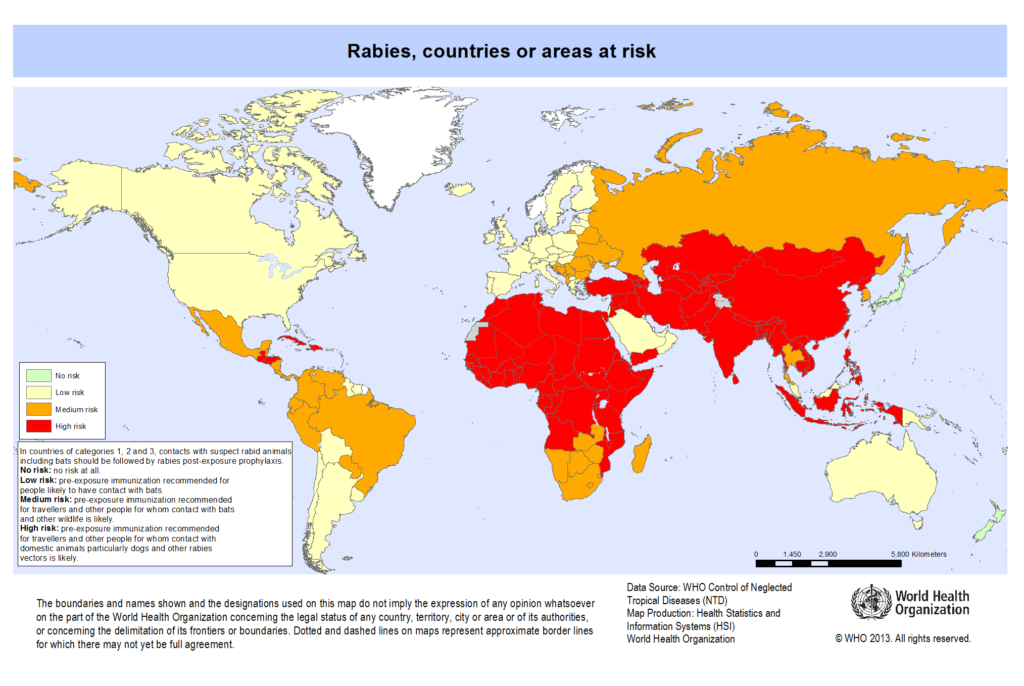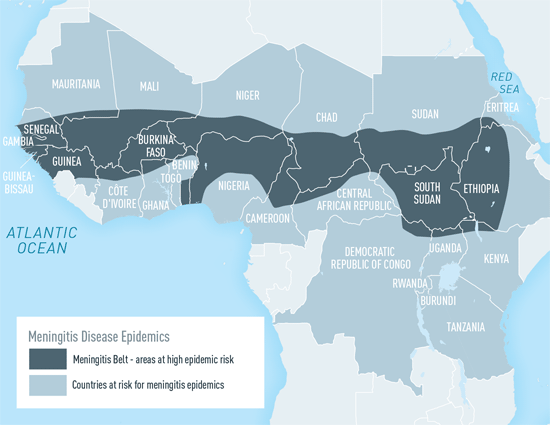Click the buttons to see which countries at risk for Yellow Fever transmission in Africa, and South America.
It’s Travel Season! What vaccines should I get? By Dr John-Alec Tynan
Following the opening of international borders, and the slow decrease in crazy airfares, many people are eagerly preparing for the long-awaited international holidays.
We’ve received numerous questions from patients about what they need before embarking on a well-deserved break, so I thought I’d share some advice from a clinical perspective.
What vaccinations do I need before travelling to X, Y, Z?
There are only a few vaccinations that are absolutely required to enter certain countries. Yellow Fever vaccination stands out, as many countries won’t let you enter or Australia won’t let you re-enter unless you have a valid Yellow Fever vaccination certificate.
Yellow Fever Vaccination
The good news is that most of the world now agrees that a single Yellow Fever vaccination counts for life.
In Australia, Yellow Fever vaccinations can only be given by accredited practices certified by the Public Health Unit of each state or territory. You’ll need to see a doctor at that clinic, who will conduct a travel medicine consultation to assess your eligibility for the vaccine and discuss risks before administering it. This vaccine must be recorded in the “Yellow Book” (officially known as the International Certificate of Vaccination or Prophylaxis) provided by the World Health Organisation.
For the vaccine to be considered effective, it must be given 10 full days before entering an area with a Yellow Fever risk. You’ll also need to wait 30 minutes after vaccination to ensure there are no side effects, such as allergic reactions.

International Certificate of Vaccination or Prophylaxis
Vaccinations
When considering other vaccines, focus on the ones with the highest risk. These include:
- Influenza
- COVID-19
- Typhoid Fever
- Hepatitis A
- Malaria
- Rabies
- Japanese Encephalitis
- Meningococcal ACWY
- Cholera
Influenza and COVID-19
Influenza is a top priority, as is COVID-19, especially if you haven’t had a flu shot or aren’t up to date with your COVID-19 vaccinations. Airports and airplanes expose you to thousands of people from around the world, increasing the risk of infection. Protect yourself by getting the flu shot and/or the COVID-19 vaccination before travelling.
Imaging this scenario: You’re at the airport with thousands of other people who are from all over the world, going all over the world. You cram into snaking queues, boarding areas, and if you travel a lot – airline lounges. Then you get onto a plane and share that air with the 5-8 people around you (imagine minesquare) if you’re flying economy. Generally, it’s HEPA filtered once you’re in the sky, but not so during boarding and taxiing.
You arrive for your fantastic 2-week break, and come down with the flu, or worse yet a severe case of COVID. If you’re lucky you’ll be right just in time to go home and go to work. So yes. Get the flu shot and/or your COVID-19 booster
Next, consider vaccines for Typhoid Fever and Hepatitis A, as these are common infections in many parts of the world. These vaccines are especially important if you’re traveling to areas with increased risk of these illnesses.
Typhoid and Hepatitis A
Typhoid and Hepatitis A infections come from contaminated food and water. With the exception of USA, Canada, Western Europe and Scandinavia, Australia, New Zealand, Japan and Antarctica, pretty much every other area on Earth has an increased risk of these illnesses.
Even if you’re staying at a 5-star resort in Bali, the food source, handling and preparation is the same. These things usually cause a week of vomiting, fevers, aches and pains – if not worse. So, if you aren’t immune or it’s been 3 years since your last Typhoid shot – get these again.
Malaria
Malaria, a mosquito-borne disease, has no vaccination, but you can take prophylaxis to reduce your risk. Mosquito bite prevention is crucial, so use repellents, wear appropriate clothing, and sleep under mosquito nets. Yes… I know, laughable at best if you’re a walking talking mosquito magnet like myself. But every less bite is helping you avoid the risk of Malaria and other mosquito borne viruses. If you’re going to a really Malaria prone area, it can be worth taking prophylaxis that prevents your risk of contracting it even if you are eaten alive.
Japanese Encephalitis
Japanese Encephalitis, another mosquito-borne disease, is rare but can be serious. The vaccine is usually only required for travelers spending more than a month in a rural area of a country at risk, however there are outbreaks in Australia, and if you live in certain local areas in NSW, you can be vaccinated through a local program. This is also worth considering if you’ll be visiting a piggery or pig farm, or working in a pork abattoir.
Rabies
Many patients and even some doctors consider rabies vaccination unnecessary. However, at GS Health, we believe it’s crucial. Australia is fortunate not to have rabies, but bat Lyssavirus is present, and 59,000 deaths occur annually from rabies worldwide, mainly in Asia and Africa.
A common misconception is, “If I don’t pet any animals, I’ll be safe from rabies.” While this may reduce your risk, unexpected encounters with animals can still occur. Currently, Australian guidelines recommend rabies vaccinations for two specific groups:
- People traveling to rabies-endemic regions for more than 30 days
- People traveling and working with animals
However, both the Medical Journal of Australia and I believe these guidelines are insufficient. A study involving 65 individuals who sought treatment in Australia after overseas rabies exposure revealed that all were aged between 20-29, vacationing for an average of 15.4 days, and not working with animals. Interestingly, 34% were bitten without initiating contact with the animals, and the exposures occurred in both urban (35%) and rural (34%) settings, specifically in Thailand and Bali.
Although the rabies vaccine does not guarantee 100% immunity, it provides crucial time to receive a booster immunization, known as Post Exposure Prophylaxis (PEP), as there is no cure for rabies once infected.
So, get your rabies shots. If bitten or exposed, seek immediate medical attention. If the local facility lacks booster vaccines and Rabies Immunoglobulin (RIG), contact your travel insurance provider and return home or visit the nearest recommended medical center (possibly in Singapore).

Meningococcus A,C,W,Y
Meningococcus vaccine is standard for all 12-month-old children in Australia. Travelers to central Africa, Hajj pilgrims, and students living on-campus in the USA may require this vaccine due to its rapid spread in crowded conditions. Also consider it for large events like university games, the Olympics and the FIFA world cup.

Cholera
Cholera is a major concern in developing countries and whilst it’s a huge killer in the developing world, the risk of contracting cholera whilst travelling is incredibly low. In fact, even if you travel to a cholera endemic area, you’re probably not going to get it (unless you start drinking the contaminated water source). BUT the vaccine does have one happy side effect. It reduces the chance of getting an E.Coli infection by about 67%, for 3 months. Now if you’re going to be backpacking through India, China or Africa, then this can be a real added layer of protection against food borne illness.
That’s so much information… what do I do next?
Well, that’s what we’re for. Just because you can get all those shots doesn’t mean you have to every time. And even if a shot is recommended, you can say no.
The best thing to do when planning your trip is to make sure you’ve got travel insurance, packed all your required clothes, medications, essential items, then have a chat with either your regular doctor if you need things sorted out, or a clinic that specialises in travel medicine if you want to get all your vaccines sorted.
I recommend coming in a month before a trip, because sometimes you need blood tests to see if you’re immune to things already – like measles – which we didn’t mention above. Otherwise, most vaccines need about 2 weeks to have their maximum efficacy, but even if it is later than this we can get started.
Rabies needs 21 days to receive the full course – day 0, 7 and 21-28.
So, if you’re heading away, I suggest finding out what vaccines you’ve had, try to confirm your itinerary, then book in for a travel consult online at GS Health and we can go through everything for you. We can even help you prepare a medical kit to take away.
